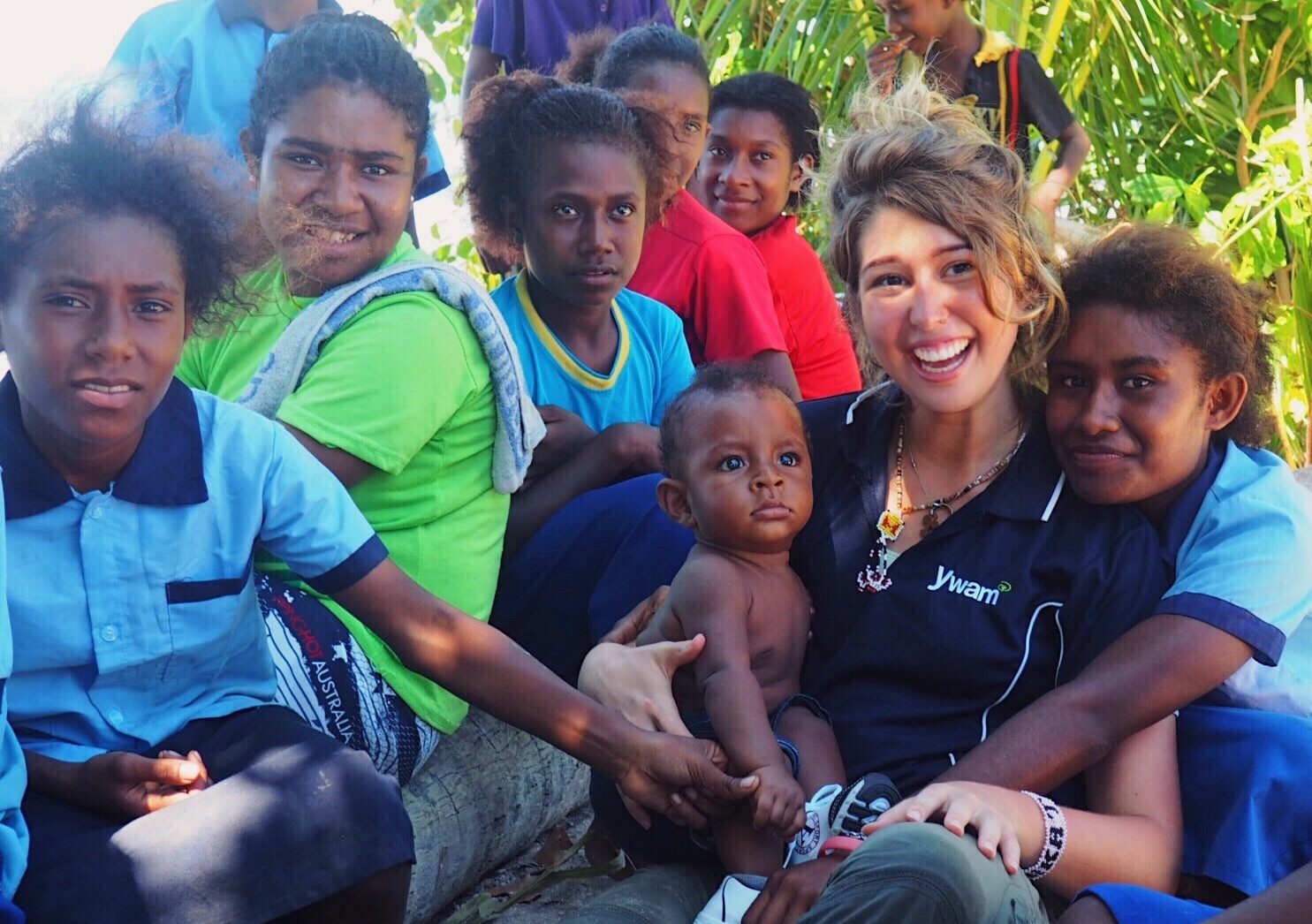Do you feel called to missions but you don’t know where to start?
It can be hard to determine which missionary training program is right for you.
There are five missionary training programs we thought worth mentioning. Whether it be a gap year program, YWAM, a Bible college, a bachelors in intercultural studies, or training from the local church; you’re unique and so is the right program for you.
Each missionary training program has pros and cons. This blog will help you sort through each one. A well-informed decision is the best decision.
No matter what, you’re on your way to missions.

Gap Year / Discipleship Program:
What is it?
A gap year program is a time set apart, typically between high school and college. These programs are intentional in cultivating a healthy environment for growth in friendships, discipleship, and leadership as a foundation for your future.
How can this prepare someone for missions?
A successful gap year or discipleship training will be stretching. The program may be overseas or cross-cultural. Cross-cultural experiences will prepare you with new situations by adapting to challenges you’ll face while engaging in missions. An impactful gap year or discipleship training provides confidence through strong faith.

Pros:
- Purposeful in drawing you closer to Christ
- Intentionally learn about God, yourself, and others
- A strong community with other believers
- Hands-on experience
- A safe environment to fail
- Practice in spiritual maturity, self-control, and discipline
Cons:
- Not physically, emotionally, or spiritually prepared
- Expectations weren’t met
- It may not be the right program for you
- You’re in a difficult season of life
- Your ambitions are different than the gap year’s intention
How do I get started?
Why would you pursue a gap year/discipleship program? The answer to that question will help narrow down your research. Ask your family and friends for gap year recommendations, pray for the Lord to guide you and bring clarity, and seek wise counsel from others who have done similar programs. Then find a gap year that will challenge you and equip you for the mission field. Ask the organization questions and if it seems like the right fit for you, fill out an application and trust God to make it clear that that is where He wants you to be in the next season of your life.

YWAM
What is it?
YWAM stands for Youth With A Mission. YWAM is a global mission’s movement dedicated to ‘know God and make Him known’. There are over 200 YWAM bases spread out across the nations featuring Discipleship Training Schools, often known by many as a DTS. YWAM trains hundreds of new missionaries every year to equip them with bringing the gospel to the far regions of the world.
How can this prepare someone for missions?
YWAM offers missionary training through a DTS, which is a six-month program designed to bring you into a deeper and more intimate relationship with God through prayer, worship and studying His Word. This is known as the “lecture phase.” The second phase, known as “outreach,” brings the students into a cross-cultural mission’s experience overseas where they can practice what they learned in the classroom and apply it to real life. After completing a DTS, most YWAM bases offer secondary training and ministry opportunities to become staff at their location.

Pros:
- Know God personally and discover your identity in Christ
- Cross-cultural, hands-on missions experience
- One-on-one mentorship
- A safe environment to grow in and utilize your gifts
- Venture into the unknown
- Ministry opportunities post-DTS
Cons:
- YWAM is a decentralized organization
- YWAM bases are separate creating inconsistencies
- YWAM bases have many different cultures living on one campus community which may be trivial.
- 6 months is relatively not a substantial time to prepare for a lifetime of missions.
- Further training may be needed post-DTS
- The training is focused on a YWAM career rather than an independent missionary.
- DTS accreditation is only recognized by YWAM
How do I get started?
To do a YWAM DTS you need to first choose a base. Where do you want to go? Each YWAM base is run individually and is a very different experience than the next base. Some bases are located in the United States and may be close to your hometown while others are overseas such as Australia or New Zealand. Once you find a base, look at the different DTS tracks they offer and fill out an application.

Bible College
What is it?
Bible Colleges are centered on God and His Word. These colleges equip students with a Biblical foundation that is essential in preparation for a future career in ministry. Usually, students can earn their Bible and Theology degree in two to four years, depending on which program they choose.
How can this prepare someone for missions?
Knowing the Bible is crucial to the life of a future missionary. Studying God’s Word will naturally grow your heart for Jesus, and therefore missions. Because the Great Commission is a Biblical calling, it’s important to know the gospel for yourself so that you are able to go out and tell others.

Pros:
- Introduction to missions from a Biblical worldview
- Grow in your relationship with God as you study His Word
- Learn within a community of like-minded believers
- Develop a deeper understanding of who God is
- Understand what the gospel means for us
- Be equipped with Biblical knowledge that can be taken to the mission field
Cons:
- No academic study cross-cultural missions or problems that arise on the field related to contextualizing the gospel
- Lack of hands-on training
- No cross-cultural experience
- Mindset is focused on the scriptures, not sharing the gospel in long-term missions
How do I get started?
There are many Bible Colleges to choose from, both locally and nationally. Start with doing research on what the best Bible Colleges are. Ask your pastor or youth leader where they would recommend. Visit a college campus in your area. If you find a Bible college that seems like the right fit for you, fill out an application and pray for the Lord to lead you.

Four Year University Degree in Intercultural Ministry or a Similar Field
What is it?
A four-year bachelor’s degree in Intercultural Ministry is achieved by studying how missions can contextualize to multiple cultures while also engaging in cross-cultural missions both locally and overseas. This degree is equally beneficial and foundational to the life of a future missionary going into full-time ministry.
How can this prepare someone for missions?
With this major, you will be equipped to evangelize, disciple, and pursue missions within any culture. You will also learn how to bring awareness of unreached people groups to the people around you and partner with those who have a desire to see God’s Kingdom spread across the world through partnership development. Learning global culture will allow you to reach out to the lost. An understanding of the world must take place before taking the gospel into it. Through this preparation comes an expertise in missions, and preparation leads to success. What more could you need?

Pros:
- Learn how to minister effectively in any culture and country
- Deepen your walk with God
- Growth in intercultural social skills
- Learn how to partner with fellow missionaries and supporters
- Study social structures, religions, and worldviews
- Become an intercultural-mission-minded Christian
- Bachelor’s degrees offer multiple career avenues
Cons:
- Financial hindrances
- Ultra-specific training
- Challenges in personal life
- Opposition from family
- You may not be called to overseas missions
How do I get started?
If you are already committed to missions, this is the missionary training program for you. Intercultural Ministry is intensely focused on missions and your walk with God. You may research for this specific bachelor’s degree online, yet there are few. Bethany Global University offers a double major of Bible Theology and Intercultural Ministry studies. Contact universities and request information to get started.

Local Church Training
What is it?
Local Church Training will vary between each church. However, there are typically some standards in which most churches follow, such as mentorship. Mentorship is intentional guidance from a church pastor or leader. It is usually part of a Local Church Training program and it’s much more personal. The way that you are mentored is usually due to an assessment of your current life stance. A question may be, “Are they ready to be a missionary?” Ideally, mentorship and specified training should take place.
How can this prepare someone for missions?
Local Church Training should be tailored growth to your specific need. Whether it be church planting, translating the Bible, computer software, or business, the training should be personalized to your missional aspirations. This preparation will offer an opportunity to practice and guide you into a future in ministry.

Pros:
- Participation in God’s plan for the church
- Learning how to effectively operate within church engagement
- Experience with the church to prepare for ministry overseas
- Personalized growth and mentorship from leaders
Cons:
- The local church is not always properly equipped to prepare one for missions
- Local churches may lack resources
- The church may not have adequate experience in missions
How do I get started?
For this type of training, you typically must be involved with a local church. If not, then you must first find a church that you would like to be actively involved in. Find out if the church offers training for missions or overseas ministry. Ask yourself: “Is there a specific area in which I need training? Is this church equip for my areas of needed growth?” Once connected with church leadership, see if you can fill out an application for an internship or a local church training program.
Example: Nurture Program at Bethlehem Baptist Church

You’ve already started the process
There are many decisions to make but acting in obedience to Him is the most important step. Know that He will show you every step along the way and enjoy the journey.
The Lord will always lead us and guide us. Prayerfully seek Him when making your decision and be open to what He may have for you.
You may rest assured that the Lord’s plan for you is good.




